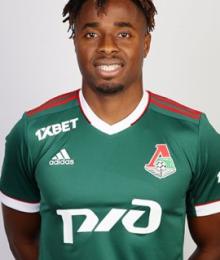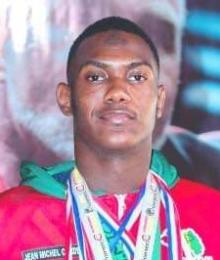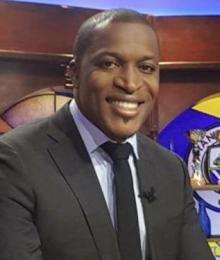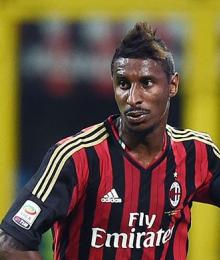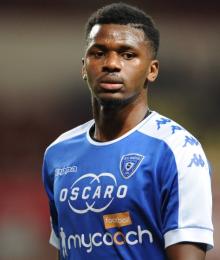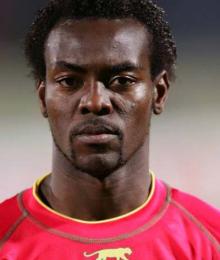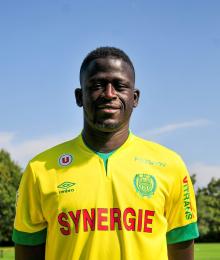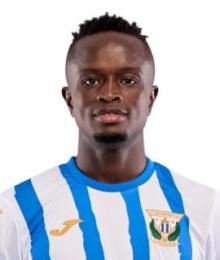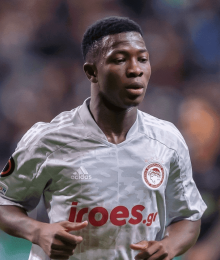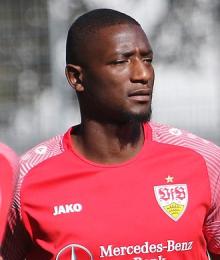
Almamy Kabèlè Camara, born on May 29, 1952, in Guinea, is a prominent figure in African football and an influential economic executive in his country. Trained as an economist and financial expert, he has held several high-level positions in Guinean public enterprises, including Director General of the Autonomous Port of Conakry in 2001 and of the Guinean Shipping Company (Société Navale de Guinée) from 2000 to 2001.
His career in football administration began as Vice President of the Guinean Football Federation from 1986 to 1994. He later rose to international prominence, becoming a member of the CAF Executive Committee in 2011 and serving as CAF’s 2nd Vice President in 2012. The highlight of his sports career came on September 29, 2016, when he was elected to the FIFA Council as a representative of the African continent. A close collaborator of former CAF President Issa Hayatou, he played a key role in securing Guinea’s hosting rights for the 2023 Africa Cup of Nations (AFCON), showcasing his ability to influence major decisions in African football while contributing to the economic development of his country.
Introduction
Born on May 29, 1952 in Guinea, Almamy Kabèlè Camara has established himself as a significant figure in African football and an influential personality in the Guinean economy. His diverse professional background and his rise within continental and global football institutions demonstrate his influence and commitment to the development of his country.
Education and Early Career
An economist and financier by training, Almamy Kabèlè Camara graduated from the Polytechnic Institute of the University of Conakry with a notable thesis on revitalizing fruit export products. His professional career began in 1979 at the Ministry of State Control, where he handled financial oversight across the national territory.
His competence and diligence quickly earned him promotions. By the end of 1979, he was appointed General Director of a district commercial enterprise in Conakry. In 1980, he advanced to the position of Deputy General Director in charge of financial administration at ALIMAG, one of Guinea's largest companies at the time, responsible for importing and distributing food products in a collectivist economic context.
Career in the Maritime and Port Sector
Following the economic restructuring of 1985 that led to the elimination of state commercial enterprises, Kabèlè Camara continued his career at the Naval Society of Guinea (SNG). There, he successively held the positions of Commercial and Operations Director (1986-1997), Deputy General Director (1997-2000), and then General Director (2000-2001).
In December 2001, his career took a new turn when he was appointed General Director of the Autonomous Port of Conakry (PAC), with the mission of further increasing the profitability of this strategic infrastructure for the Guinean economy. In this position, he oversaw major port development projects, including the third port extension project estimated at $55 million, aimed at strengthening its regional competitiveness.
Rise in the Football World
Alongside his career in administration and public enterprises, Almamy Kabèlè Camara invested himself in the world of football. He held the position of Vice-President of the Guinean Football Federation (FGF) from 1986 to 1994, laying the groundwork for his future influence in African football governing bodies.
His career in continental football administration truly took off in February 2011, when he became a member of the Executive Committee of the Confederation of African Football (CAF). The following year, in 2012, he was appointed 2nd Vice-President of this same committee, strengthening his status within the institution.
The pinnacle of his football career came on September 29, 2016, when he was elected a member of the FIFA Council, representing the African continent within the supreme governing body of world football. This election, held during an extraordinary general assembly in Cairo, demonstrated the confidence placed in him by the 54 African national associations.
Close Collaborator of Issa Hayatou
During his career at CAF, Almamy Kabèlè Camara distinguished himself as one of the closest collaborators of the long-time president of the institution, Issa Hayatou. Considered one of the "guardians of the temple" during Hayatou's 28-year reign, he was part, along with Constant Omari (DRC) and Mohammed Rouaroua (Algeria), of CAF's inner circle of influential decision-makers.
His proximity to Hayatou allowed him to influence important decisions, notably the awarding to Guinea of the rights to host the 2023 Africa Cup of Nations (CAN), during an unprecedented decision where three editions of the tournament were awarded simultaneously (Cameroon 2019, Ivory Coast 2021, Guinea 2023).
Vision and Commitments
Upon his election to the FIFA Council, Almamy Kabèlè Camara declared his intention to work "with all [his] strength to serve the cause of clean football with dignity, honor, and effectiveness." His career demonstrates his ability to navigate the political complexities of African football while maintaining a position of influence.
During his mandate at the Autonomous Port of Conakry, he demonstrated a strategic vision for Guinea's economic development. In an interview given in 2002, he encouraged foreign investors to trust in his country's political stability and economic potential, emphasizing that "Guinea is a rich country, potentially, economically, and culturally speaking."
Legacy and Influence
Almamy Kabèlè Camara's career illustrates the journey of a Guinean executive who was able to adapt to the political and economic changes in his country while building significant influence in international sports institutions. His election to the FIFA Council in 2016 constitutes recognition of his expertise and commitment to the development of African football.
After the leadership changes at CAF in 2017, with the departure of Issa Hayatou, Kabèlè Camara was able to maintain his position of influence by adapting to the new political context of African football. His career demonstrates a remarkable capacity for adaptation and a constant desire to contribute to the development of sport and the economy of his country.












